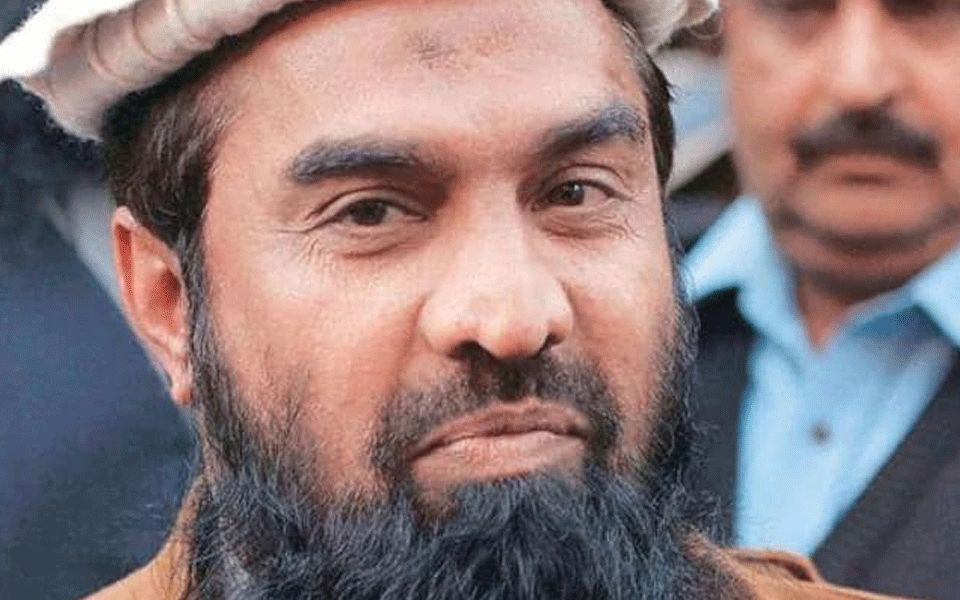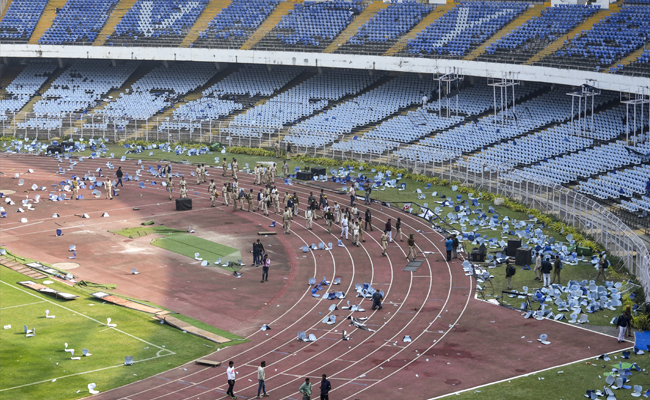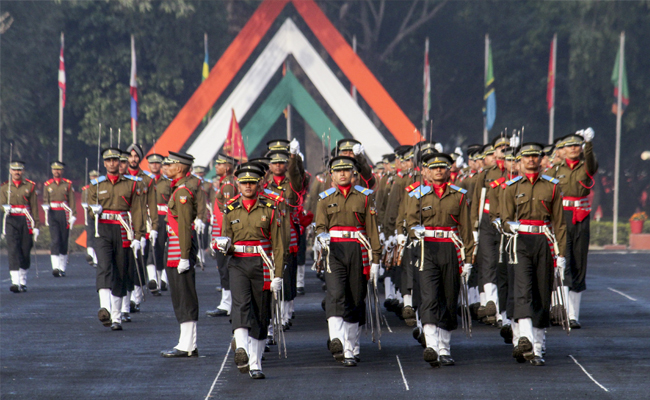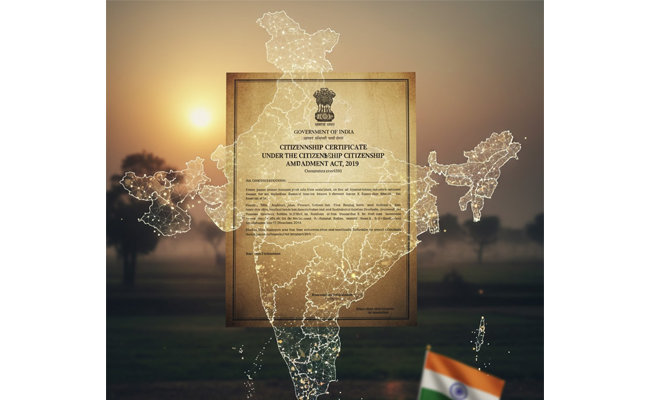Lahore: Mumbai attack mastermind and Lashkar-e-Taiba (LeT) operations commander Zaki-ur-Rehman Lakhvi was arrested on Saturday in Pakistan on terror financing charges, according to an official statement, amidst growing international pressure on Islamabad to bring to justice terrorists roaming free in the country.
UN proscribed terrorist Lakhvi, who was on bail since 2015 in the Mumbai attack case, was arrested by the Counter-Terrorism Department (CTD) of Punjab province.
However, the CTD did not reveal the place of his arrest.
"Following an intelligence-based operation conducted by the CTD Punjab, proscribed organisation LeT leader Zaki-ur-Rehman Lakhvi was arrested on charges of terrorism financing, the CTD said in an official statement.
It further said that Lakhvi, 61, was arrested in a case of terrorism financing registered in a police station of CTD Lahore.
"Lakhvi is accused of running a dispensary, using funds collected for terrorism financing. He and others also collected funds from this dispensary and used these funds for further terrorism financing. He also used these funds for personal expenses," the CTD said.
The CTD said that in addition to belonging to proscribed organisation LeT, Lakhvi is also a UN designated individual.
"His trial will be held before the Anti-Terrorism Court in Lahore," it added.
Lakhvi was designated as a global terrorist by the UN in December 2008 for being associated with LeT and al-Qaeda and for participating in the financing, planning, facilitating, preparing or perpetrating of acts by, in conjunction with, under the name of, on behalf or in support of both the entities.
Proscribed terrorists and entities are subject to an assets freeze, wherein all states are required to freeze funds and other financial assets or economic resources of designated individuals and entities, a travel ban that prevents the entry into or transit through nations' territories by the designated individuals and an arms embargo.
Last month, the UN Security Council's 1267 Al Qaeda Sanctions Committee allowed for a monthly payment of Pakistani Rupee 1.5 lakh for Lakhvi to meet his personal expenses.
The LeT, led by Jamat-ud-Dawa (JuD) chief Hafiz Saeed, is responsible for carrying out the 2008 Mumbai attack that killed 166 people, including six Americans.
The global terror financing watchdog Financial Action Task Force (FATF) is instrumental in pushing Pakistan to take measures against terrorists roaming freely in Pakistan and using its territory to carry out attacks in India and elsewhere.
The Paris-based FATF placed Pakistan on the Grey List in June 2018 and asked Islamabad to implement a plan of action to curb money laundering and terror financing by the end of 2019 but the deadline was extended later on due to COVID-19 pandemic.
Let the Truth be known. If you read VB and like VB, please be a VB Supporter and Help us deliver the Truth to one and all.
New Delhi (PTI): Three members of a family were found dead inside their home in southeast Delhi's Kalkaji on Friday, with police suspecting it to be a case of suicide, officials said.
Police said the incident came to light around 2.47 pm when a police team reached the premises to execute a court order related to possession of the property. When repeated knocks went unanswered, the staff used a duplicate key to open the door.
Inside, officers found Anuradha Kapoor (52) and her sons, Ashish Kapoor (32) and Chaitanya Kapoor (27), hanging from the ceiling, Deputy Commissioner of Police (Southeast) Hemant Tiwari said in a statement. All three were declared dead.
A handwritten note was recovered from the room, suggesting the family had been struggling with depression.
"The handwritten note indicates emotional distress faced by the family due to which the family may have taken the extreme step," the officer said.
The bodies have been shifted to the All India Institute of Medical Sciences (AIIMS) mortuary for post-mortem and other legal formalities under Section 194 of the Bharatiya Nagarik Suraksha Sanhita (BNSS), police said.
Residents of the neighbourhood said they were shocked to learn about the deaths, adding that the family kept largely to themselves.
Pankaj Kashyap, a resident of Girinagar, said he learnt about the deaths while leaving for work. "I live and work here and was leaving for work when I saw many people standing outside and talking. That is how I got to know that three people had committed suicide. I also saw several police vehicles outside, but I do not know much beyond that," he said.
Baldev, another neighbour, said the family had been living in the newly constructed house for around two years. "We only knew that a mother and her two children lived there. They had moved into the newly built house around two years ago. We did not interact much with them. Today we heard that all three have committed suicide, and whatever we know is based on what people here are saying," he said.
Another neighbour, Ramesh Kumar, claimed the family had earlier attempted suicide.
"About fifteen to twenty days ago, the two sons in the family had attempted suicide and police and ambulances had come. That was when I first got to know who they were. I do not recognise them by face, but we saw the ambulances and police take the two sons that day. Today again we saw ambulances and police arriving, so everyone came out to see what had happened. I do not know how long they had been living here, but this is all we know," he said.
Police said they are examining the family's financial condition, social circumstances, and other factors that may have contributed to the incident. Further investigation is underway.





